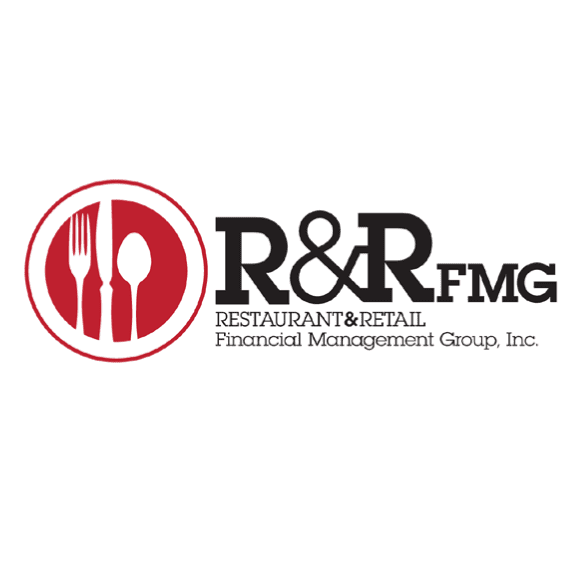
Wayne Lipschitz founded and manages Restaurant & Retail Financial Management Group, Inc. (RRFMG), a professional firm that provides back-office accounting and executive services for the restaurant and retail industries. He has been actively engaged since January 2013. Wayne also serves as the outsourced President and/or CFO for several restaurant concepts. Prior to RRFMG, he held various CFO and controller positions with private, public and private equity-backed companies such as Spectrum Clubs, Inc. (Spectrum Athletic Clubs), Grill Concepts. Inc. (Grill on the Alley and Daily Grill), San Manual Band of Mission Indians (San Manual Casino and other economic developments), International Coffee & Tea, LLC (Coffee Bean & Tea Leaf), The Cheesecake Factory Incorporated (The Cheesecake Factory), and Wolfgang Puck Food Company, L.P. (Wolfgang Puck Cafes and frozen foods). Wayne is a CPA and previously worked for a national CPA firm for seven years. He holds a B.S. in Accounting from California State University (Northridge).

As the CEO of RRFMG, you’ve worked with a diverse range of restaurant clients. What do you believe is the most important quality or strategy for a restaurant to succeed financially in today’s competitive market?

A restaurant needs to be sufficiently capitalized — be a concept that has legs so that it can be duplicated and travel to new cities and states. The stakeholders also need to be passionate about what they are doing.
As far as strategy goes, the stakeholders need to know what they are wanting to build and have a strong vision, how they will finance that growth, and what the detailed strategy to achieve those goals will be. Usually, when this strategic plan is shared across the organization, it fires up the whole team. That gives a better chance of successful implementation.

You’ve emphasized the importance of raising capital for restaurant growth. Can you provide an example of how RRFMG’s network and expertise helped a restaurant secure the necessary funds for expansion?

This has been a very relevant and successful byproduct for some of our clients, by being closely associated with RRFMG.
Most recently through our network of partners and contacts we were able to introduce a private equity (PE) group, that we do other R365 accounting work with, to a client with a great concept, Bacari Restaurants. After a process of talking to other investors, doing due diligence, and legal documentation, the deal closed with the PE firm becoming a minority investor in our client. A year into it, this has been a great relationship, and we are proud that we were able to create this mutually successful introduction.

RRFMG offers executive services, including positions like CFOs and COOs. How do these roles contribute to a restaurant’s strategic growth, and can you share a success story where an executive placement made a substantial impact?

We have filled these executive roles for many growth restaurant and retail companies. These roles usually run anywhere from several months to 7 years in one case. The usual outcome is that RRFMG works with the client to get them to a much bigger company where they can eventually justify the role we perform, such as the outsourced CFO, being brought in-house on a full-time basis. So essentially, defining success is working ourselves out of the role. In almost every situation we were the first CFO, COO, etc. And got the client to where they needed to be to make this a full-time role.
However, in most cases we have been able to also do the outsourced back-office accounting, or other projects and services for the same client.
This has also led to us developing a third platform for our business, where we work with larger clients that already have their own in-house accounting group, which we helped develop while being an outsourced CFO, until they bring in a full-time CFO. A service we now offer out of our Philippines office is “Outsourced Virtual CPA’s”.
We This service works by RRFMG will filling roles for these larger clients that have their own in-house accounting department by adding virtual CPAs at various levels (senior accountants, accounting supervisors, accounting managers, financial analysts, etc.) that work out of our office in the Philippines. We provide a white-glove service where we document the position, prepare SOP’s, recruit for the right candidate that the client eventually signs off on, and then we have an in-house client account manager (CAM) that manages this group to ensure they are supported from our end, while working directly with the client’s accounting team. Besides allowing our larger clients to get qualified candidates that we can train and support on R365, they are seeing labor savings in excess of 50-70%.

In the realm of restaurant advisory services, how does RRFMG collaborate with clients to uncover opportunities for growth beyond traditional financial analysis?

RRFMG believes in strong communication with the client, especially at the stakeholder level. This allows us to understand their business, systems, and procedures and work on improvements.
Besides moving all our clients on to R365 over the last 9+ years and giving them better tools to manage their business, we look at opportunities to build budgets for them, document procedures, and make strategic introductions to some of our other partners. All this helps the client evolve and grow their business with RRFMG closely involved.

As technology continues to evolve, how does RRFMG leverage emerging tools and software to provide cutting-edge financial solutions for your clients?

We attend the relevant industry technology conferences, we subscribe to the same type of literature, and as mentioned, we have also invested in a Manager of Development, whose job it is to research, suggest, train, and implement new systems in order for us to not only be efficient, but to be on top of our game.

Imagine that you had the ability to solve one common accounting problem in the restaurant industry. What problem would you choose to solve, and how would you do it?

Interestingly enough, a lot of challenges from years back have been improved, like better POS systems, more direct integration of systems, and information to eliminate double and triple data entry.
One of the things we have found that is still very manual and reliant on people, is maintaining logs like a critical/recurring vendor list. The idea being to ensure that no critical or important vendors get missed with regular payments.
Having a program, integrated with your accounting system, that lets you create this list and then have the accounting system maintain, populate, and update the list as vendors are paid so that nothing gets missed, that can cause utilities to be shut-off, landlords to react, etc. When this is done by a person manually, there are many opportunities for error that eventually have an adverse effect.
If you are a Restaurant365 partner and interested in participating in a partners interview, please reach out to Pinar Alptunaer at palptunaer@restaurant365.com.



